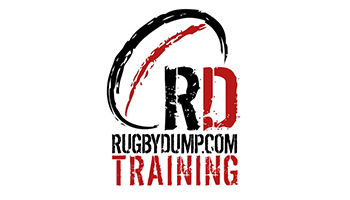
I am a great believer in an individual’s ability to make increasing physiological gains throughout the season not merely “maintaining” after having a solid off and pre season. It requires planning, commitment and focus on an oft understated part of the training process, RECOVERY.
I am a coach that prefers the term “UNDER RECOVERED” to “over trained” and encourage all my athletes to focus just as much on their recovery as they do putting kgs on the bar and their technique.
Recovery needs to be viewed as a vital part of your preparation. Preparation for the next session, preparation of rebuilding the body, preparation for getting better.
For most people, the week will look something like this:
SATURDAY: Game day
SUNDAY: Recovery / active recovery
MONDAY: (Dependent on physicality of Saturday’s game) Gym based session
TUESDAY: Technical training, possible gym session
WEDNESDAY: Gym based session
THURSDAY: Technical training
FRIDAY: Rest, prepping for game
With only 2 to 3 possible gym sessions and 1 or 2 technical sessions per week you need to be in the best physical (& mental) shape you can be to get the most out of them.
Your recovery starts the minute that final whistle goes on Saturday!
THE FOUR R’s OF RECOVERY
REHYDRATE, REFUEL, REPAIR, RELAX
REHYDRATION: How many of you focus on or understand the role of hydration on your performance? Yes most of you will “hydrate”, drink a sports drink during workouts but how many take a conscious decision to recognise their hydration state?
First and foremost, check the colour of your urine in the morning, if it is anything other than clear, you are already playing catch up. If it’s dark?!?! Try drinking 500ml of water with breakfast or as soon as you wake up, not only will this kick start your metabolism but also your hydration state.
GAME DAY: Try weighing yourself before and after the game to see the impact fluid loss has on your body mass, many of you may be surprised to know it could be anyway from 0.5 – 4kg, possibly more if you play in warm climates. That needs replacing and quickly.
For the club I work with, players are weighed before the match, 90minutes prior to kick off (wearing shorts only) and immediately after (wearing shorts only). They are then given a set amount of fluid to drink (based on their body mass deficit) before they shower.
REFUEL: After you have exercised or played your glycogen stores will be depleted, ingesting carbohydrates is just as important at this point as protein. Look for a 2:1 carb to protein ratio for any meal or supplementation you take 0 – 60minutes after training.
GAME DAY: What do you do at half time? Have a “slurp” of water, sit and relax for the 7 – 10 minutes you have? How many of you take some form of carbohydrate gel / drink? This will help maintain fluid levels and actively seek to assist your performance for the second half.
Following the game, my players have complete their hydration protocol, shower, change and receive a “recovery” shake with a nutrition content similar to above before they leave the changing rooms. Many will then go into the clubhouse and share the post match meal with their teammates and opponents, but by having this protocol in place we can negate any clubs that don’t offer quite a nutritious meal, and for some players they find it difficult to eat immediately after hard training or games, so this ensures they are getting the necessary nutrients.
REPAIR: How many of you perform a cool down? Have an ice bath? Have contrast therapy? Perform active recovery the following day?
Performing a cool down seeks to take the body back to its pre exercise / game state, it looks to mobilise the joints and stretch the musculature. The early you can start the process the better.
The jury on ice baths is still out, but what can’t be ignored in my opinion is the psychological effect, if you like them and believe they work then do it!
Do participate in an active recovery the following day (after a match), light swimming, yoga, stretching in a sauna. What are you doing to active prepare the body for the sessions coming up this week?
RELAX: The less stress we can have in our lives the better, but I live in the real world and understand people have commitments; family, peers, social, work etc that bring their own stress. One of the most overlooked recovery strategies is getting a good night’s sleep! That means 8 or more hours.
Plan bed time and stick to it, no electronic devices within one hour of that time. Spend that hour before bed in a calm relaxing environment.
SUMMARY
- Even with limited time resources, you can still make noticeable gains in season
- Rehydrate, refuel, repair, relax, the 4 R’s of recovery
- What are you doing everyday / session to prepare yourself for the next one
- We train to improve our performance on a Saturday, and your recovery starts the minute the whistle goes to end the game in preparation for the next one
Meet Coach KevinKevin Shattock is a professional rugby strength & conditioning coach from Yorkshire, England. He began his career as a fitness instructor in the Royal Air Force. After receiving the Queen’s Commendation award, he left military life and the United Kingdom. He spent his next years training mountain climbers in the Himalayas. After returning home to the UK, Kevin became a strength & conditioning coach and developed High Intensity Rugby Training to assist talented players achieve elite performance. Kevin is one of our official RugbyDump Strength Academy trainers and we’re lucky to have him aboard. |  |
Sign In